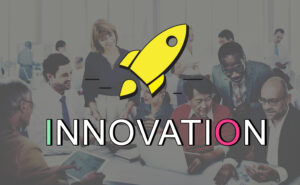Proven Growth Hacking Strategies for Startups in 2025
1. Business Trends on the Rise in 2025
As 2025 progresses, companies are conforming to a fleetly evolving terrain. The geography of arising business trends is heavily told by advances in technology, changing consumer demands, and shifts in the global frugality. Notable developments similar as the growth of generative AI, blockchain operation, and an increased emphasis on sustainability and hand health indicate that businesses are transubstantiating to remain competitive. crucial characteristics of ultramodern enterprises include large– scale personalization, remote work societies, and decision– making driven by data. To thrive, companies need to be adaptable, invest in new ideas, and continuously estimate their strategic objects in response to these ever– changing factors.
2. Small Business Innovation
Innovation is vital for small businesses, not just large pots. Small enterprises, frequently working with limited coffers, tend to be more flexible and willing to suppose creatively to break problems. By espousing new technologies, furnishing unique client gifts, or exploring unconventional marketing strategies, small businesses can set themselves apart piecemeal. Engaging the community for ideas, partnering with other startups, and exercising digital coffers like AI analytics or no-law platforms can greatly enhance growth and competitiveness. In the current request, invention is pivotal, not simply a choice for survival.
3. incipiency Growth Hacking ways
For startups, the secret to rapid-fire growth lies in growth hacking. This approach focuses on using creative, low– budget tactics to attract and retain guests. ways similar as referral programs, viral marketing, hookups with influencers, and product– led strategies can yield remarkable results. By employing A/ B testing, assaying data, and exercising robotization tools, startups can snappily upgrade their styles. The main thing is to grow effectively without wasting coffers. By staying streamlined and engaging in ongoing trial, startups can discover what strategies work stylish and amplify them for sustainable growth.
4. The elaboration of Remote Work
Remote work has converted from a transitory trend into a core aspect of business operations. As we look to 2025, companies are enhancing remote or cold-blooded models to boost productivity, cut costs, and retain top talent from anywhere around the globe. Essential tools now include virtual collaboration platforms, AI-powered design operation, and pall services. Nonetheless, issues similar to nurturing company culture, icing cybersecurity, and managing remote hand performance necessitate careful planning. Organizations that acclimatize to support inflexibility while keeping their brigades engaged and cohesive will shape the future of work.
5. The Role of AI in Business Decisions
Businesses are undergoing a transformation in their decision-making processes thanks to Artificial Intelligence. By utilizing predictive analytics, understanding customer behavior, and implementing smart automation, companies are able to create strategies that are driven by data with enhanced speed and precision. Business leaders are turning to AI to anticipate market shifts, tailor customer experiences, and streamline supply chains. Nonetheless, for successful integration of AI, access to quality data, ethical considerations, and thorough training are essential. Organizations that excel in AI implementation will likely enjoy a substantial advantage over their competitors.
6. Innovation in Sustainable Business Practices
Today, sustainability has become essential for businesses, transcending mere corporate responsibility. Companies are striving to lower their carbon emissions, utilize sustainable materials, and foster circular economies. The integration of green technologies, responsible sourcing, and ESG (Environmental, Social, and Governance) standards is redefining how success is measured in business. Both consumers and investors are leaning towards organizations that balance environmental responsibility with profitability. By making sustainability a fundamental part of their strategy, companies can create lasting value while tackling global issues.
7. Strategies for Growth in E-commerce
For e-commerce brands, achieving growth centers around providing fast and valuable service. Key approaches encompass broadening product offerings, tapping into new markets, and enhancing logistics and customer service. Utilizing SEO, social media marketing, and partnerships with influencers can significantly increase audience reach. Advanced data analysis is crucial for creating personalized experiences and boosting customer loyalty. Additionally, automating inventory management and order fulfillment is vital. To scale successfully, e-commerce businesses must ensure a balance between growth, efficient operations, and an unwavering commitment to customer satisfaction.
8. Technology Trends Transforming Industries
Industries are being transformed and challenged by technology in numerous ways. With advances in AI, IoT, blockchain, and 5G, these innovations are creating exciting new opportunities. In the manufacturing sector, automated smart factories are boosting productivity. The healthcare field is seeing a revolution in patient care due to telemedicine and wearable devices. Financial services are changing with the rise of fintech and digital currencies. For companies, the priority is to stay updated, invest in the right technologies, and be ready to quickly adjust to new ways of working.
9. Business Digital Transformation
Digital transformation goes beyond just using new technology; it involves rethinking how companies create value. This process requires incorporating digital tools into every facet of the business, including customer service and internal processes. Technologies like cloud computing, AI, customer relationship management systems, and digital marketing enhance speed, intelligence, and personalization. The role of culture and leadership is vital for successful transitions. Organizations that welcome change and adopt a digital-first approach are more likely to succeed in a world that is rapidly becoming more digital.
10. Entrepreneurial Mindset for Today’s Leaders
In a world that is constantly changing, having an entrepreneurial mindset is invaluable. Leaders today need to adopt the thinking of entrepreneurs—flexible, resilient, and focused on spotting opportunities. This mindset promotes experimentation, views failures as lessons, and prioritizes quick action over perfection. This quality is not just for startup founders; corporate executives also gain from being innovative and attentive to customer needs. Fostering a sense of intrapreneurship within companies helps create a culture of ownership and ongoing improvement. In a landscape where change is the norm, entrepreneurial thinking is crucial for effectively managing complexity and making a meaningful impact.















Post Comment